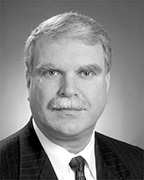Many years ago, someone said to me, “if you or your firm has never been sued, you are probably not really in the real estate business.” While I believed that was a rather cynical view of the real estate world, I am more inclined today to see that such cynicism may not have been entirely misplaced. Think for a moment about potential areas of dispute involving real estate: tax assessments, eminent domain takings, contamination matters, divorce, partnership disputes, landlord-tenant relations, zoning appeals, bankruptcies, and the list goes on….and on. Because of the adversarial nature of our legal system, plaintiffs and defendant parties are required to support positions which will surely be attacked and questioned vigorously by the opposition. What makes real estate cases ripe for litigation is most often not related to factual disagreements, but rather to differences in opinion related to damage estimates, property rights, performance standards and property values.
There is an old saying: price is a fact while value is an opinion. Market conditions, building performance and utility, cost to cure estimates, rent levels, capitalization rates, and a host of other market and property specific factors are frequently in dispute and often involve differences of opinion. Oftentimes, the interpretation of these variables is pivotal to resolving a case. Many factors require legal guidance and should reflect the impact and meaning of laws and regulations in a particular dispute. When disagreements are not resolved between parties, resolution through full blown litigation often requires the engagement of experts who have particular specialties and can assist in evaluating the central issues of disagreement.
Many people believe that attorneys seek out experts who are willing to provide them with specific conclusions regardless of whether the opinion is sound and credible. In my experience, this is simply not the case for the vast majority of honest, hardworking members of the bar. Yes, they are advocates, but they are clearly interested in understanding the strengths and weaknesses of their client’s complaint. They are not interested in pursuing matters that are doomed to fail with senseless litigation. Have I seen exceptions to this in the last 35 years? Yes, but this is a rare occurrence, in my view.
What are the characteristics of a good expert? There are many factors to consider, including:
• Experience;
• Technical knowledge;
• Professional qualifications;
• Attention to detail;
• Excellent communication skills;
• The ability to listen;
• The ability and confidence to deliver “bad” news to the client.
It is important to select an expert who has substantial and relevant experience. In a real estate case, broad knowledge is important, however, it is crucial that the expert has specific experience in the disputed area. Diluting an expert’s role by trying to extend his or her opinion to matters that are not central to their practice is a risky strategy. Other predicate experts may be needed to establish and support a position from which the primary expert can proceed with an educated opinion and be deemed credible.
Experts must be challenged on two fronts, first by the client and ultimately by the opposition. It is critical for the client and legal counsel to clearly understand the expert’s conclusions and what evidence has been brought to bear in support of that opinion. The attorney and client must be able to identify the strengths and potential weaknesses of their own expert’s views. This process assists in evaluating the case and a potential risk-reward calculus for possible settlement. Lack of preparation in this area can contribute to poor decision making and difficulties at trial.
Communication skills are also very important. The expert must be able to assess the knowledge base and the subject-specific sophistication of the judge or the jury. Technical areas which are well understood by the expert may sound like a foreign language to the layman. Glibly explaining complex financial issues to the uninitiated is more likely to confuse than enlighten. For example, a judge who prior to being appointed to the bench spent 25 years litigating medical malpractice cases, should be presented with a more thoughtful and carefully crafted direct examination when contrasted with a judge who previously spent 25 years as a real estate attorney and doesn’t need a real estate 101 type of presentation.
As a final thought, an expert should be willing to admit what he does not know. No witness is expected to know everything. In order to maintain credibility in a deposition or a trial setting, the expert must let honesty and credibility lead the way. Under cross examination, some experts are reluctant to give an inch and admit something that they perceive (real or imagined) as detrimental to their opinion or the cause of their client, even in the face of solid evidence. This is a mistake, because such moments, apart from breaching ethical responsibilities, undermine the credibility of the witness and renders suspect everything they say.
Donald Bouchard, CRE is a senior vice president at Lincoln Property Co., and is the 2016 chair of the N.E. Chapter of the Counselors of Real Estate.









